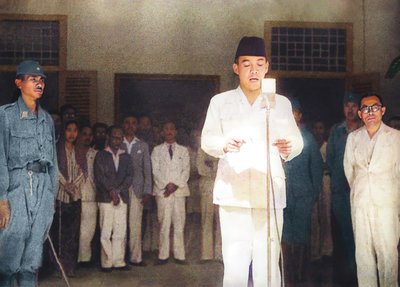During the 5th to 19th centuries, several kingdoms emerged in the archipelago, including the Hindu-Buddhist kingdoms of Kutai, Srivijaya and Majapahit, and the Islamic kingdoms of Samudera Pasai, Demak and Mataram. These kingdoms played a significant role in the development of Indonesian culture and society.
In the 17th century, the Dutch East India Company (VOC) began to establish its presence in Indonesia. The VOC eventually gained control of most of the archipelago. In 1799 the VOC went bankrupt due to rampant corruption, after which the Dutch East Indies took over the VOC's rule over Indonesia.
Dutch colonial period lasted for over 300 years and was led by Governor-General Van den Bosch. During the colonial period, the Dutch implemented a number of policies that had a significant impact on Indonesian society. One of the most notable policies was the Forced Cultivation System (cultuurstelsel), which required farmers to grow certain crops for export. The Forced Cultivation System was exploitative and led to widespread hardship among the Indonesian people.
Despite the hardships of colonialism, the Indonesian people continued to develop their sense of national identity. In 1928, Indonesian youth leaders declared the Youth Pledge, which affirmed their commitment to a unified Indonesian nation with one language and one homeland.
On August 17, 1945, Indonesia’s first president, Soekarno, declared the country’s independence. However, the Dutch refused to recognize Indonesia's sovereignty, and a four-year war of independence ensued. In 1949, the Dutch finally recognize Indonesia's independence.
